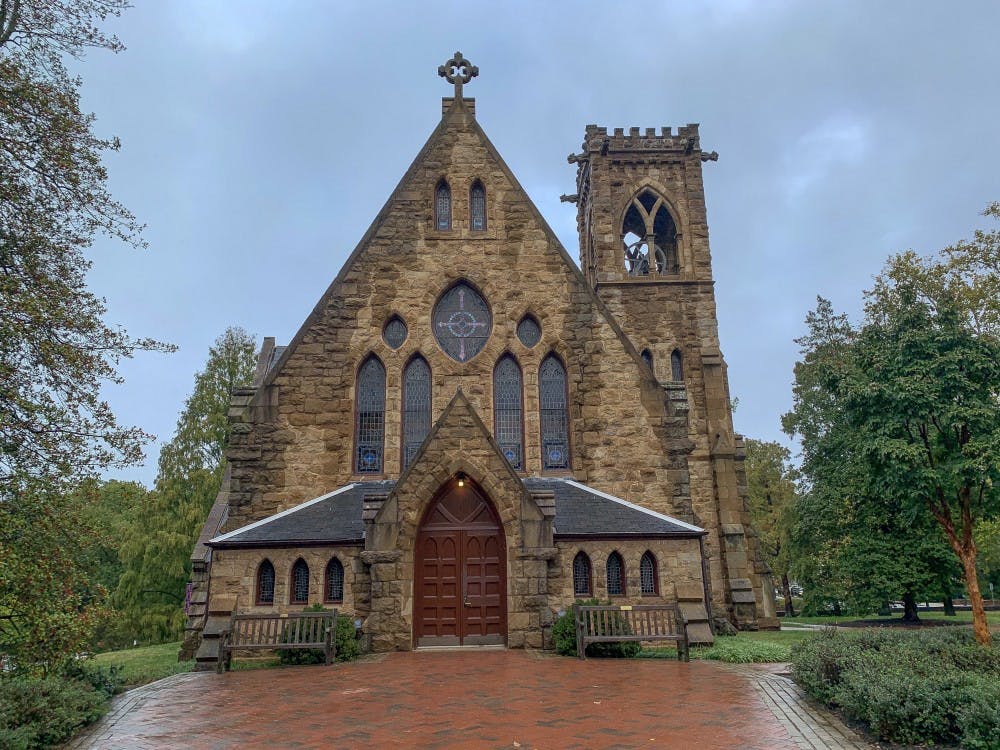Every other week, late in the evening, a handful of students belonging to a group called “Plus” gather in the upper room of a church close to Grounds. In many ways, we are like the dozens of other small bible studies or religious small groups. We talk about scripture, community and God, about our lives and the problems we face. Someone talks too much and someone else is less empathetic than they should be. The meeting always closes in prayer.
In other ways, the little bible study we call “Plus” is different. Whenever a new person shows up to a meeting, we go around the circle and, starting with our names, announce our pronouns, year, course of study and the dreaded “identity.”
We talk about identity in two parts. The first deals with how we view ourselves — “gay,” “lesbian,” “queer,” “same-sex attracted” and “same gender loving.” The second part is about how and whether we believe we are permitted to experience intimacy or a relationship. One answer “affirming” or “side a,” meaning you don't believe sex between two people of the same gender to be intrinsically immoral. Another answer is “un-affirming,” “celibate” or “side b,” meaning that you do.
Discourse around the “problem” — and it does seem to be a problem — of queer Christians often employs the metaphor “building a bridge” between gay people and the Church. The LGBTQ community and the Christian Church are characterized as two bodies in need of reconciliation. The problem is that these groups are not as distinct or clearly demarcated as this bridge image suggests. In fact, countless queer Christians navigate both of these worlds every day. The little group we call “Plus” is of such people.
Proposed solutions to this navigation have been somewhat unappealing. For example, Democratic presidential candidate Beto O’Rourke recently came under fire for suggesting that churches that don’t support same-sex marriage should lose their tax-exempt status. His statement incited immediate backlash from both Christian conservatives claiming that such a move would violate their right to freedom of religion, as well as some progressives like Sen. Elizabeth Warren, D-Mass., and Mayor Pete Buttigieg. More interestingly, however, is how his answer highlights the tenuous relationship between state institutions and religious organizations.
Here at the University we do not have to look into history or examine the tax code to see this tenuous interaction play out — we have only to look at the largest Christian fellowships around Grounds.
Contracted Independent Organizations are mandated to include a non-discrimination agreement in their constitutions. In this agreement, “A student organization is ineligible for CIO status when the organization restricts its membership, programs, and/or activities on the basis of … sexual orientation.” In practice, this vague policy has little impact on the experience of LGBTQ Christians. The non-discrimination policy, which has no publicized vehicle for accountability, is ineffective since religious CIOs are technically allowed to restrict their membership if the group is religious in nature. Moreover, discrimination also comes couched in language like “love the sinner, hate the sin,” or manifests itself not in barring students from participation but from leadership. What this means is that these organizations have all the privileges of CIO status, such as access to funding and the ability to reserve space, while simultaneously marginalizing LGBTQ students at the University.
We see this lack of enforcement on Grounds all the time. Many queer individuals at the University share this same story — a queer person comes to the University and is looking for community. Maybe they grew up going to church, maybe they didn’t. They happily find themselves in one of these large evangelical fellowships. The people are nice, they make friends in their bible study, they're given a free t-shirt or a little caution sign keychain. But then they go to their pastor wanting to come out publicly and are told it's best they don't. Or they want to talk about LGBTQ issues and are met with silence. Or else they’re told by a friend that they need to stay in the closet, as they'd never be allowed to lead a small group or take a leadership role if they came out. Suddenly the home they found for themselves here feels like no home at all. The organization which had become so much more than just the church they went to, which had come to define their whole lives, seemed to turn its back on them.
To be clear, I don’t think that the solution is to punish anti-LGBTQ religious organizations. To punish those groups is to penalize the sincerely held religious beliefs of these people. Additionally, to single out religious groups for specific beliefs is a dangerous precedent and progressives seem to be far more comfortable doing with Christian churches than minority religious communities, as O’Rourke exemplified.
Instead, it's time to be clear and honest. It's time for students in every religious organization to demand clarity around the place of queer people in their fellowship. It's time for Student Council and the University administration to consider how seriously they are when they ask CIOs to sign on to the non-discrimination policy, but most of all, it's time to break the insidious silence around this issue and prevent the damage done to countless LGBTQ students seeking to become part of a community of faith.
Lachlan Hassman is a fourth-year in the College and serves as President of The University Fellowship, the undergraduate ministry at St. Paul's Memorial Church on the Corner.







